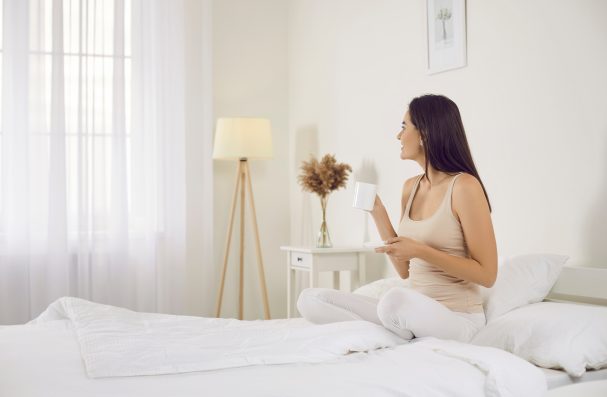New Research Suggests That People Who Naturally Wake Up Early May Have A Heightened Risk Of Developing Anorexia Nervosa

Recent research suggests that those who wake up early might have a higher chance of developing anorexia nervosa.
The study, a collaborative effort by teams from Massachusetts General Hospital, University College London, and the University of the Republic in Uruguay, found a genetic connection between waking up early and this severe eating disorder.
The researchers pointed out that individuals suffering from anorexia nervosa are often early risers who struggle with insomnia.
This positions anorexia nervosa as a disorder inclined towards morning routines, distinguishing it from other mental health issues like depression, schizophrenia, and binge eating disorder, which are more aligned with evening habits.
The study investigates the connection between anorexia, the circadian clock that regulates sleep and various bodily functions, and specific sleep characteristics, such as insomnia.
By using statistical techniques, the researchers were able to analyze how genes associated with anorexia influence different sleep patterns, thus revealing a link between anorexia nervosa and sleep-related behaviors.
A key discovery of the study is the correlation between genes connection to anorexia nervosa and those associated with being a “morning chronotype,” which means a preference for waking and sleeping early.
This suggests that people who naturally rise early might have a heightened risk of developing anorexia nervosa, and conversely, those with anorexia nervosa may be more inclined to be early risers.
“Our findings implicate anorexia nervosa as a morning disorder in contrast to most other evening-based psychiatric diseases and support the association between anorexia nervosa and insomnia as seen in earlier studies,” said Dr. Hassan Dashti, the study’s senior author.

Studio Romantic – stock.adobe.com – illustrative purposes only, not the actual person
Although current treatments for anorexia have high relapse rates, as much as 52%, and the exact cause of the disorder remains uncertain, this study offers new insights into its possible connections with sleep patterns.
“The clinical implications of our new findings are currently unclear. However, our results could direct future investigations into circadian-based therapies for anorexia nervosa prevention and treatment,” concluded Hannah Wilcox, the study’s lead author.
Given that anorexia also has the second-highest death rate among mental health disorders, the research team underscored the importance of additional research.
To read the study’s complete findings, which have since been published in JAMA Network Open, visit the link here.
Sign up for Chip Chick’s newsletter and get stories like this delivered to your inbox.
More About:Science





